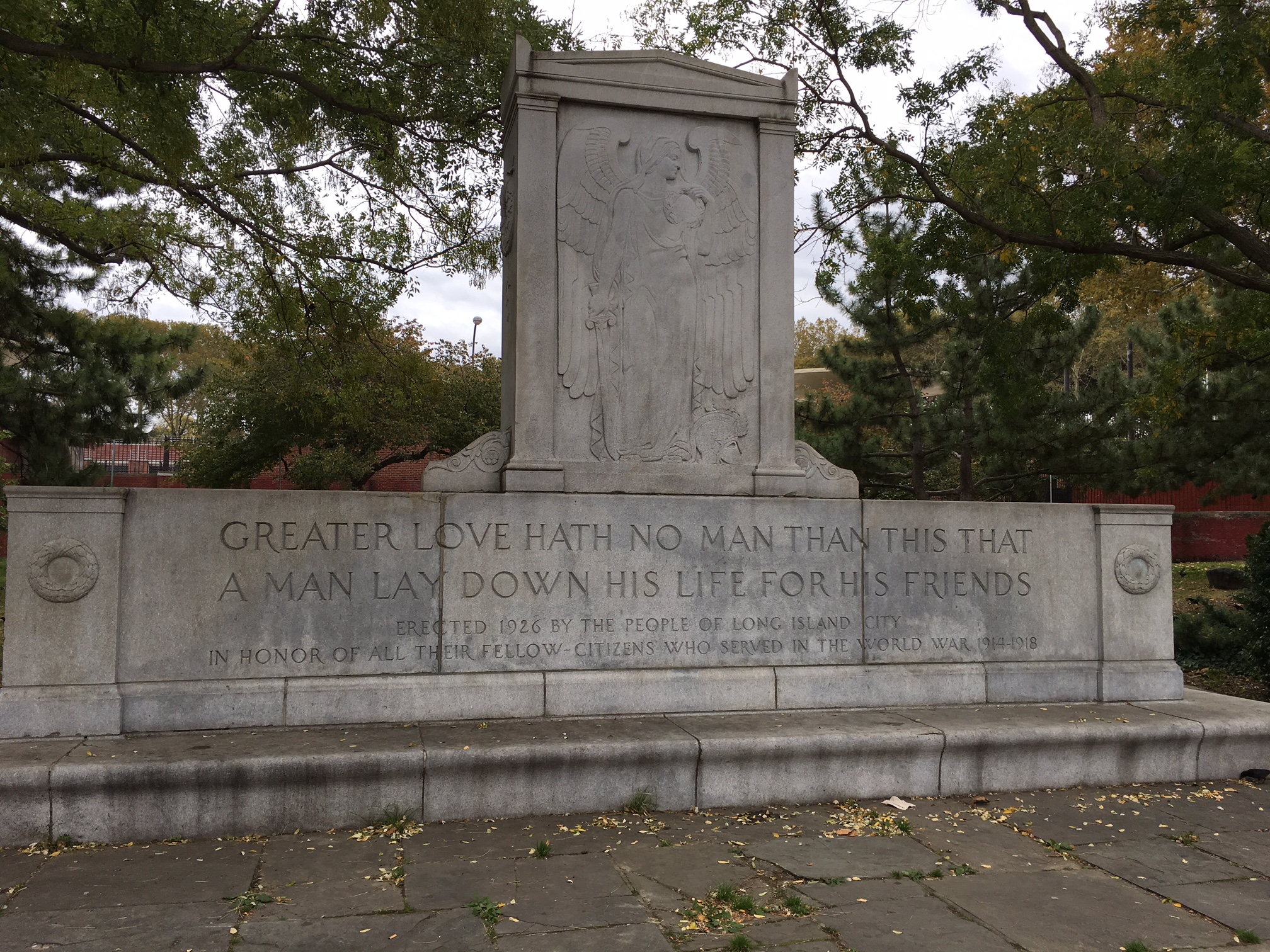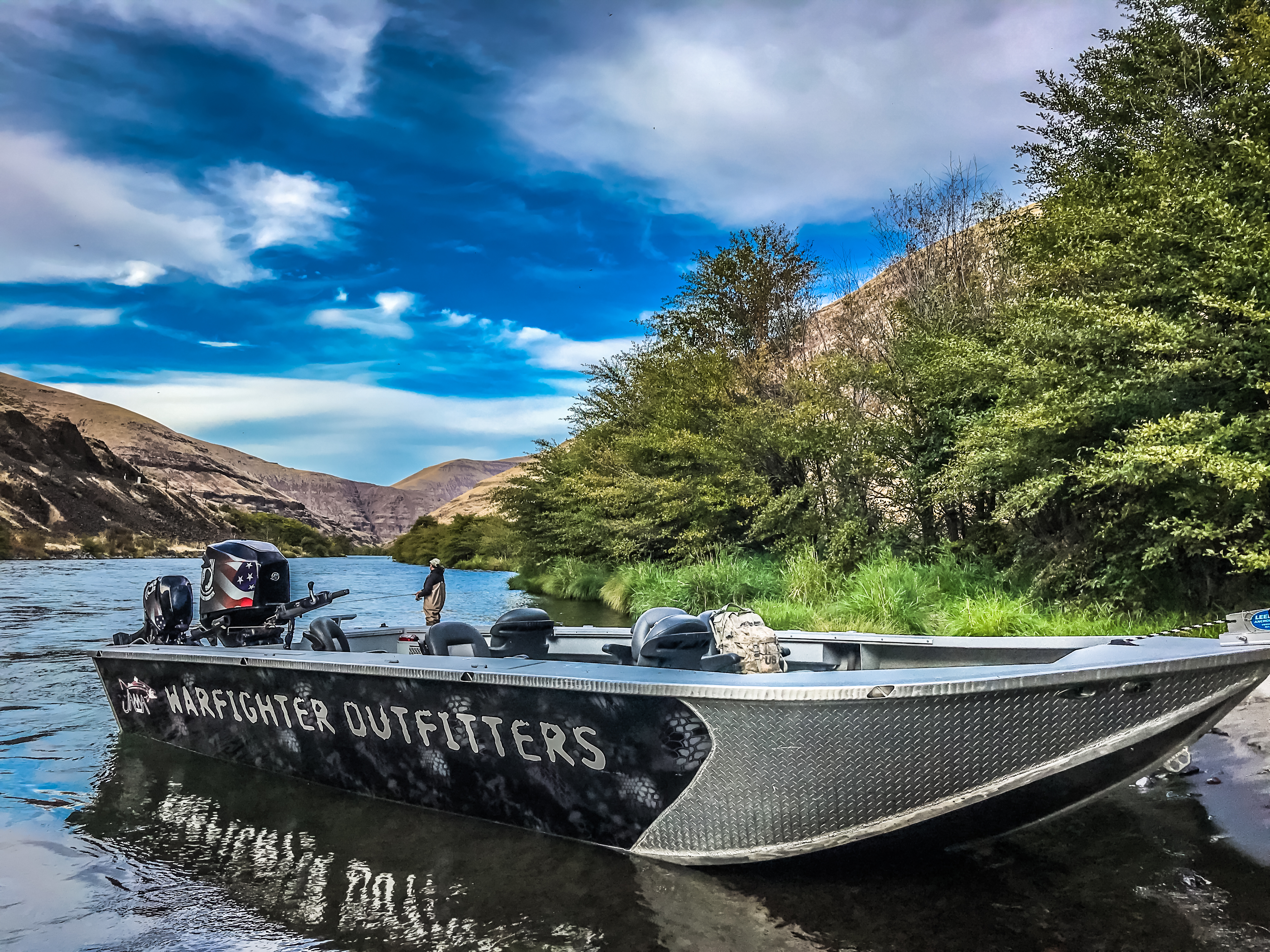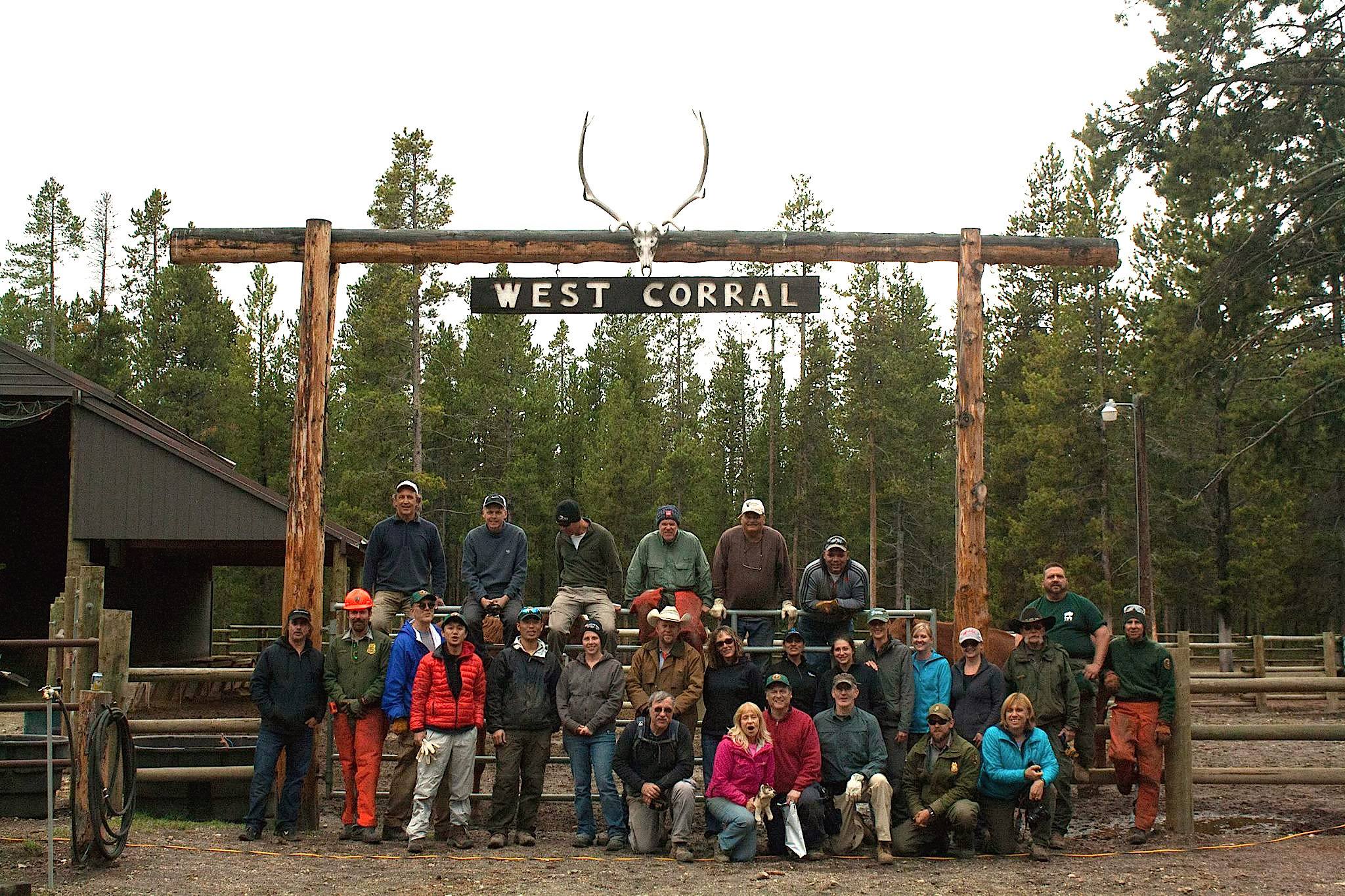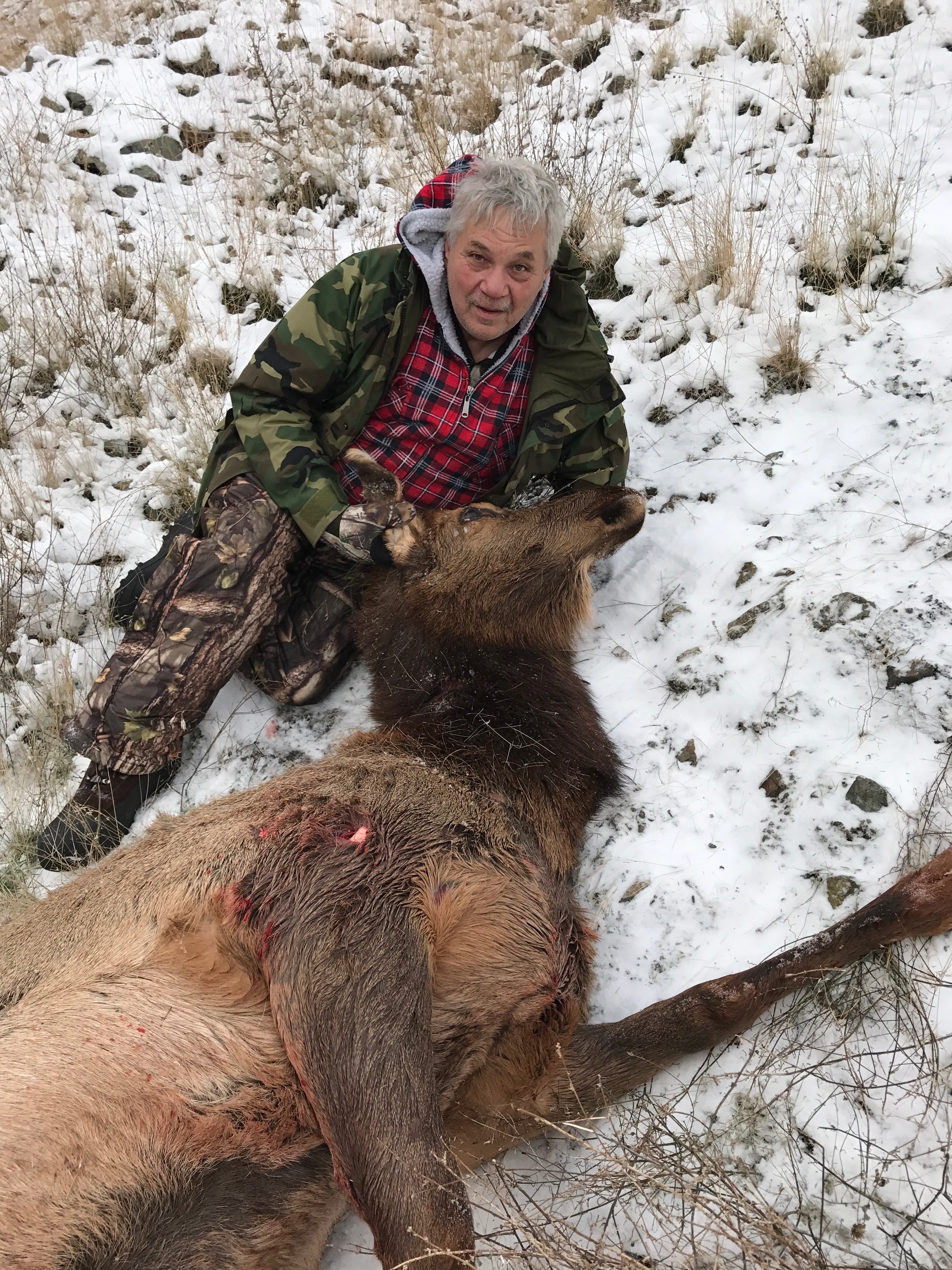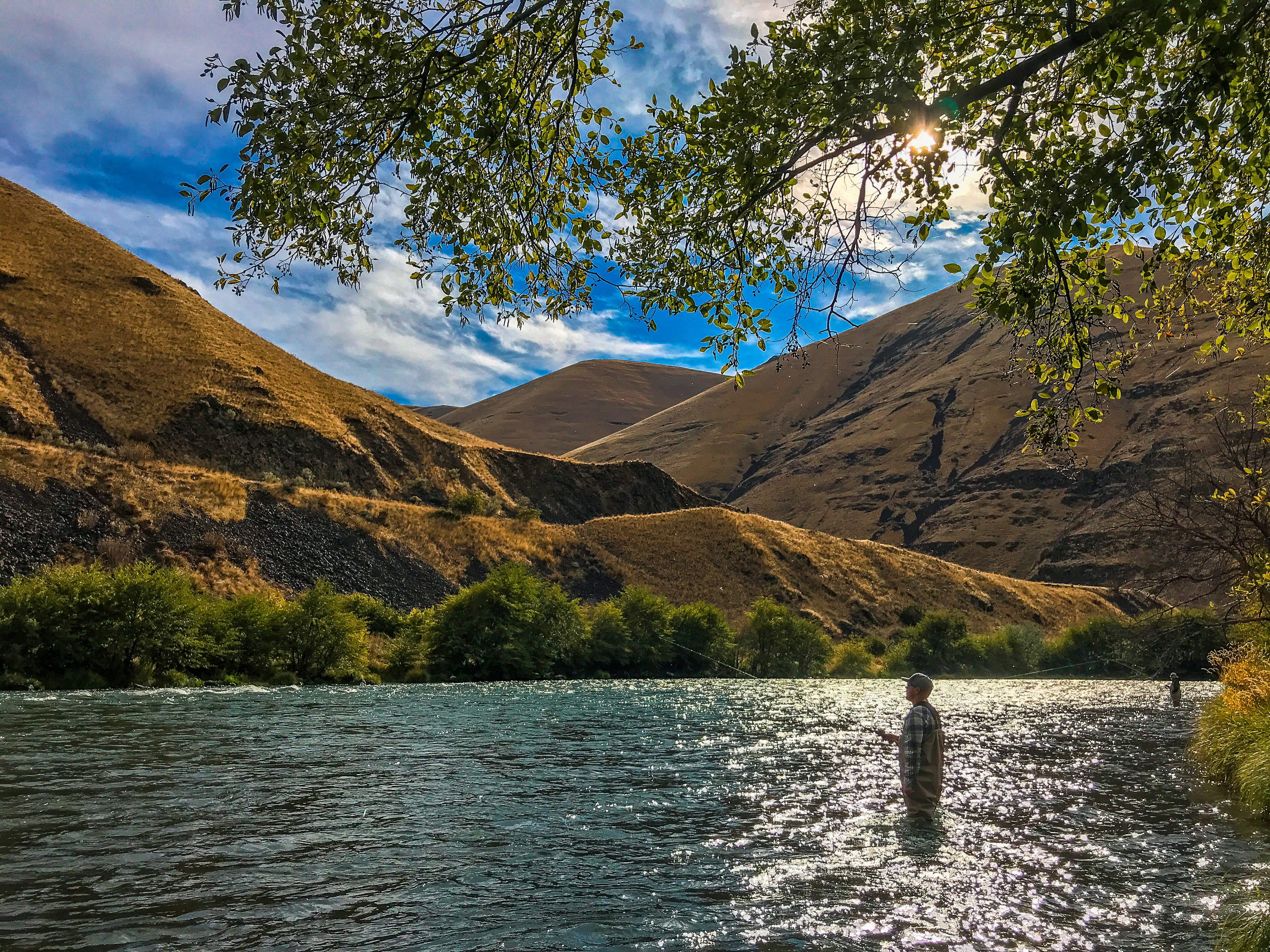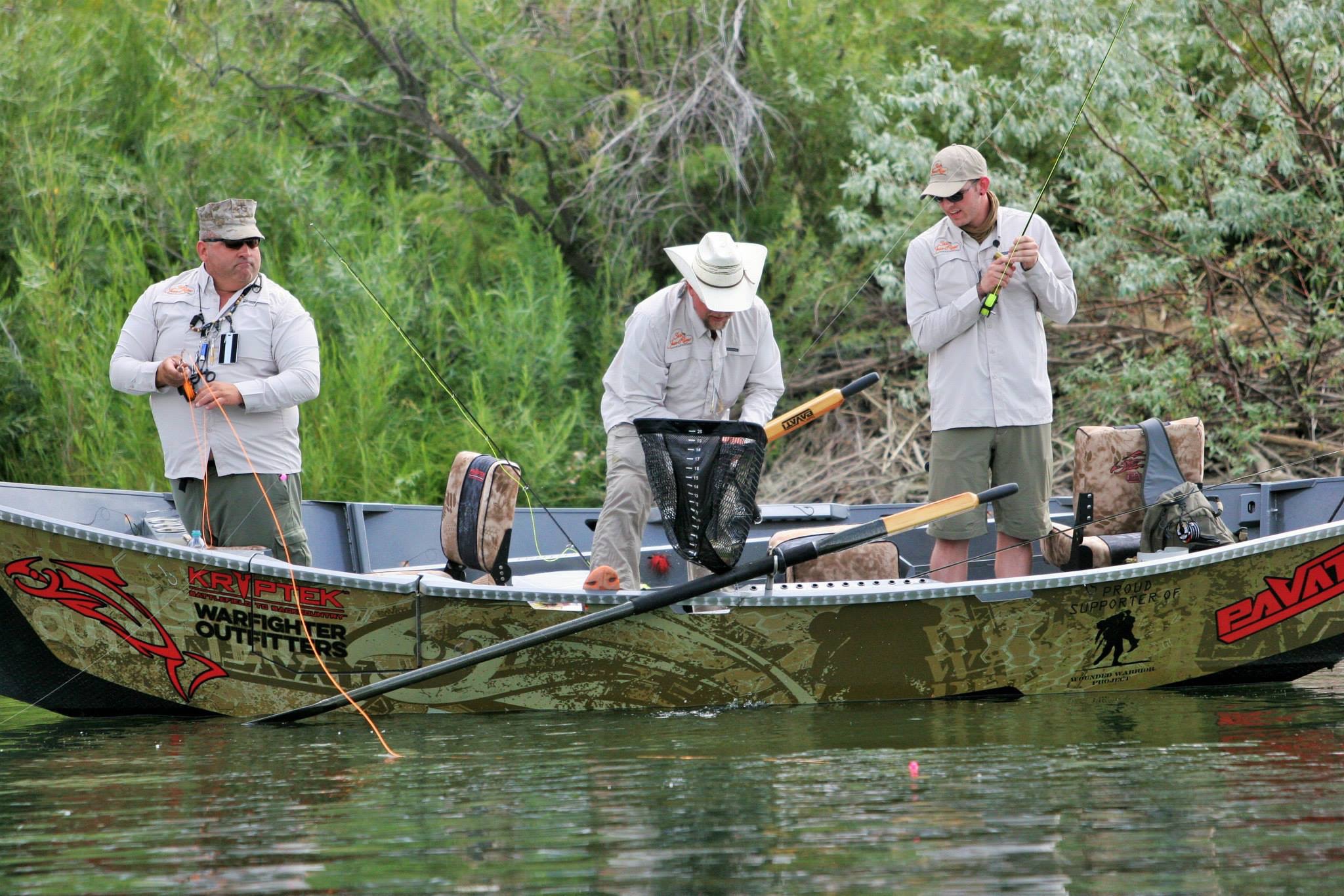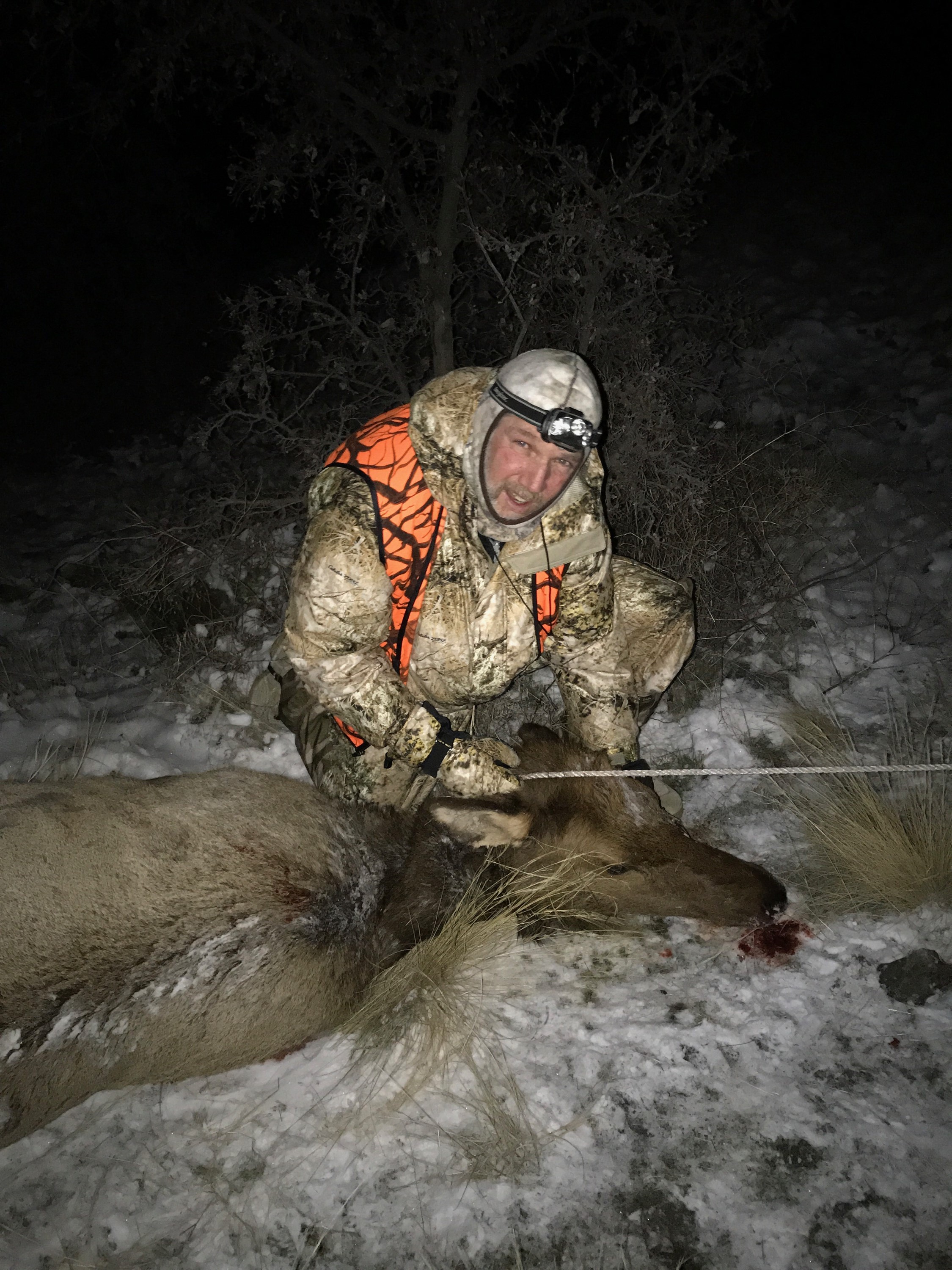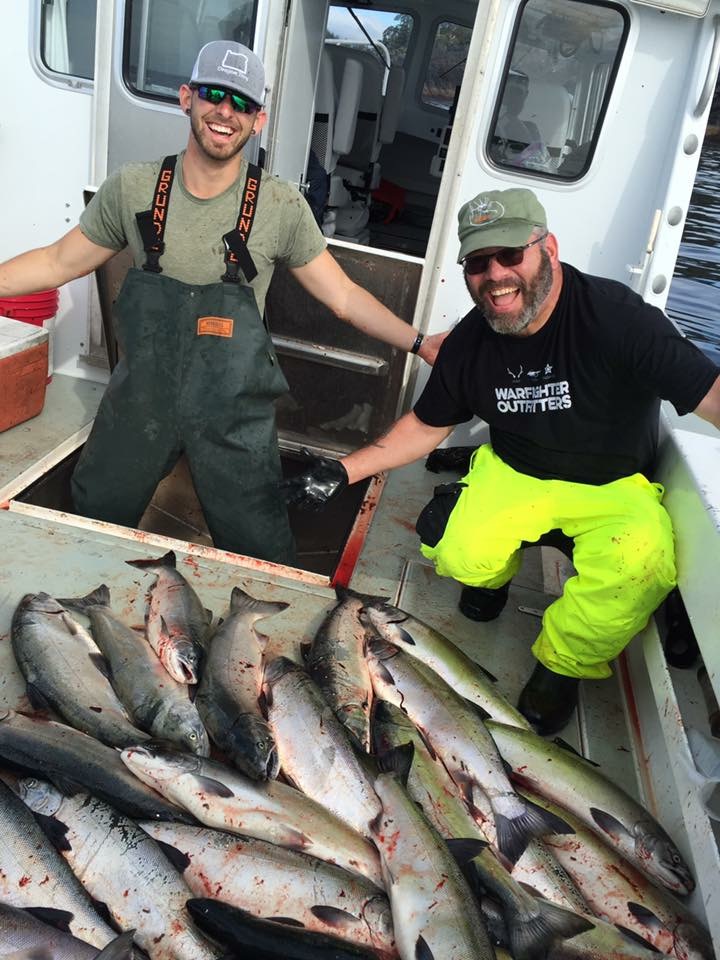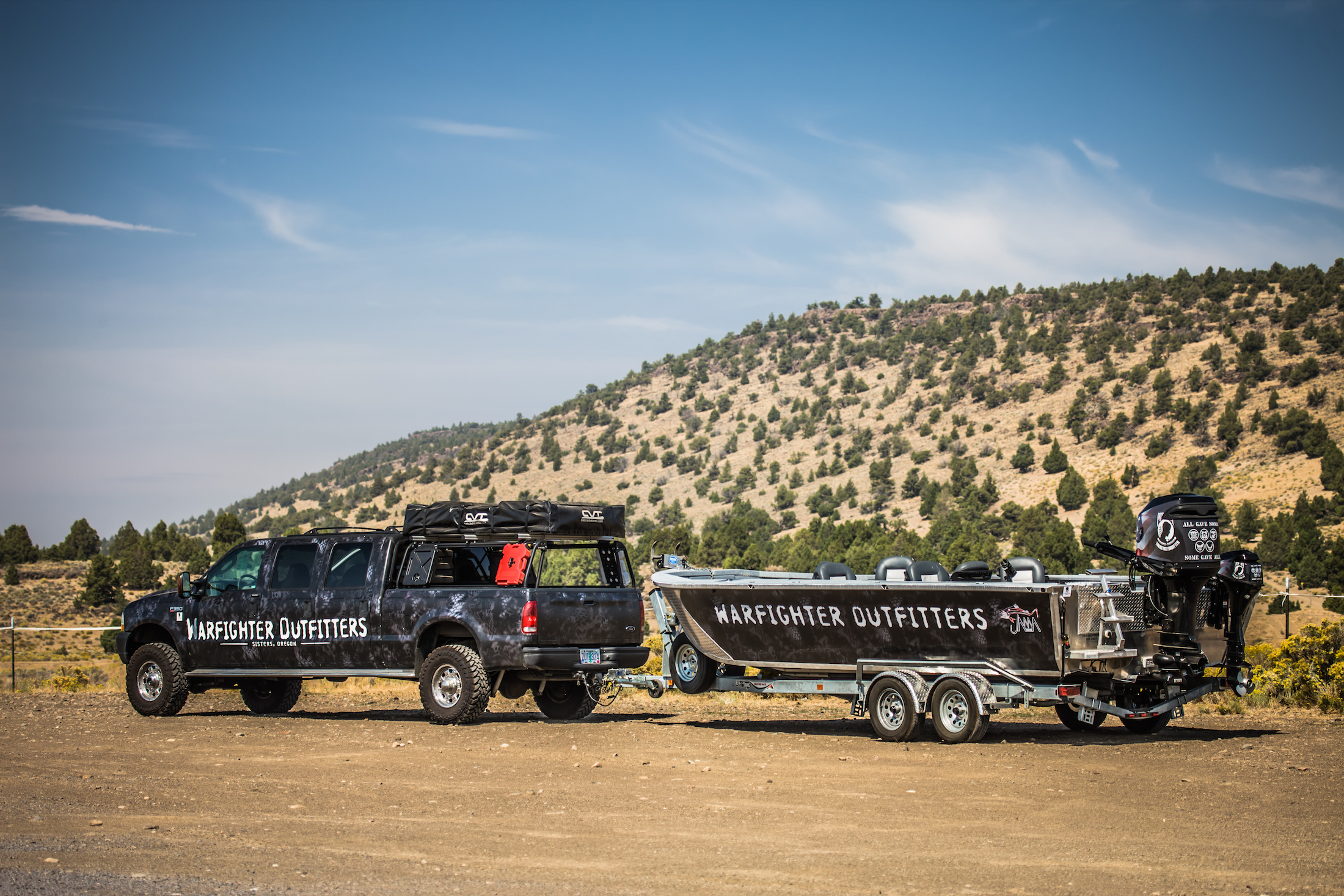Veterans Helping Veterans Through The Outdoors
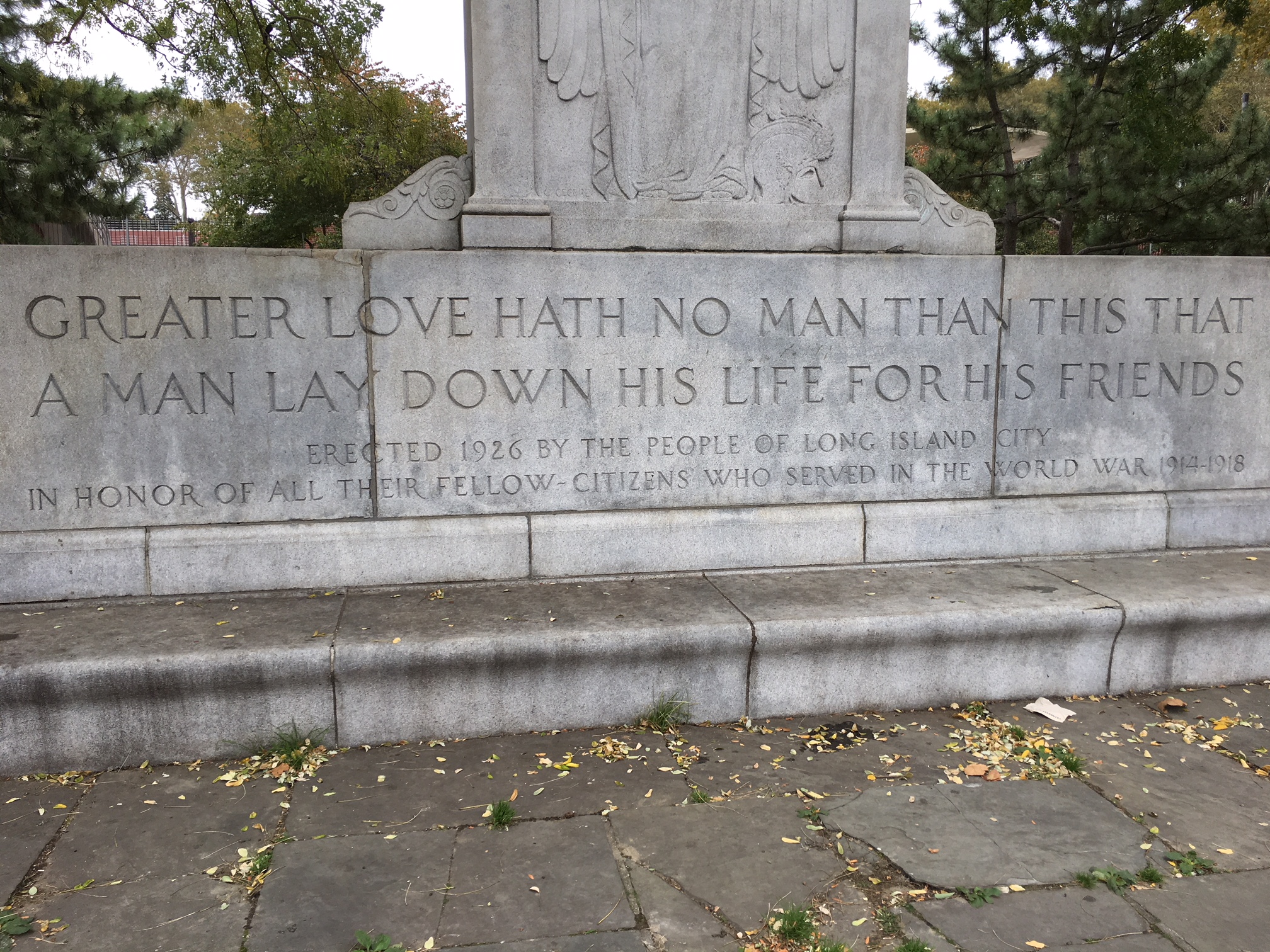
Saturday is officially Veterans Day, but today is when the holiday is being officially observed, so take some time out to honor those who have fought for their country.
To honor our veterans on this holiday, check out this story that’s running in our November issue on a disabled veteran who is doing his best to share his love of the outdoors with fellow wounded warriors:
By Chris Cocoles
Photos by Warfighter Outfitters
The veteran that Brett Miller had taken on one of the fishing trips he leads for wounded warriors wasn’t exactly opening up about anything – not his experiences in combat or if he was even enjoying himself that day.
Miller, himself a disabled veteran and founder of a Sisters, Oregon-based nonprofit, Warfighter Outfitters, understands that some of those recovering from a traumatic injury might not be willing to bare their soul right away, but this guy seemed content to not say anything. He’d been in trouble upon his return to civilian life and was in what’s known as Veteran’s Court when Miller signed over custody of the man and brought him along to fish in central Oregon, which he did without incident, but also without engaging in any conversation of any kind.
“He just kept to himself and fished and was catching fish. A couple months went by and I asked him if he wanted to come to a fly fishing tournament with us.” Miller says. “We drove the whole way to New Mexico from Oregon – like 12 hours. Nothing. Didn’t say a word, not a peep. He was just a mannequin, a crash-test dummy.”
Miller’s team finished second and took home a trophy, yet the man remained as stoic as ever, barely speaking on the entire drive to the Pacific Northwest. So whatever therapeutic value Miller’s efforts rubbed off on the man, he didn’t seem comfortable sharing them.
A year went by before Miller heard from him again.
“All of a sudden on social media, he hits me up and says thanks. ‘I bought a boat and now I’m taking guys fishing on it,’” Miller says. “You never know the impact of what one day or one trip will have.”
It’s that kind of feel-good story that has given hope to Miller, who was lucky to survive a 2005 attack in Iraq that left him permanently disabled and questioning what value his life would have. It turns out there was quite a lot. Like so many of his comrades, he just had to find it again.
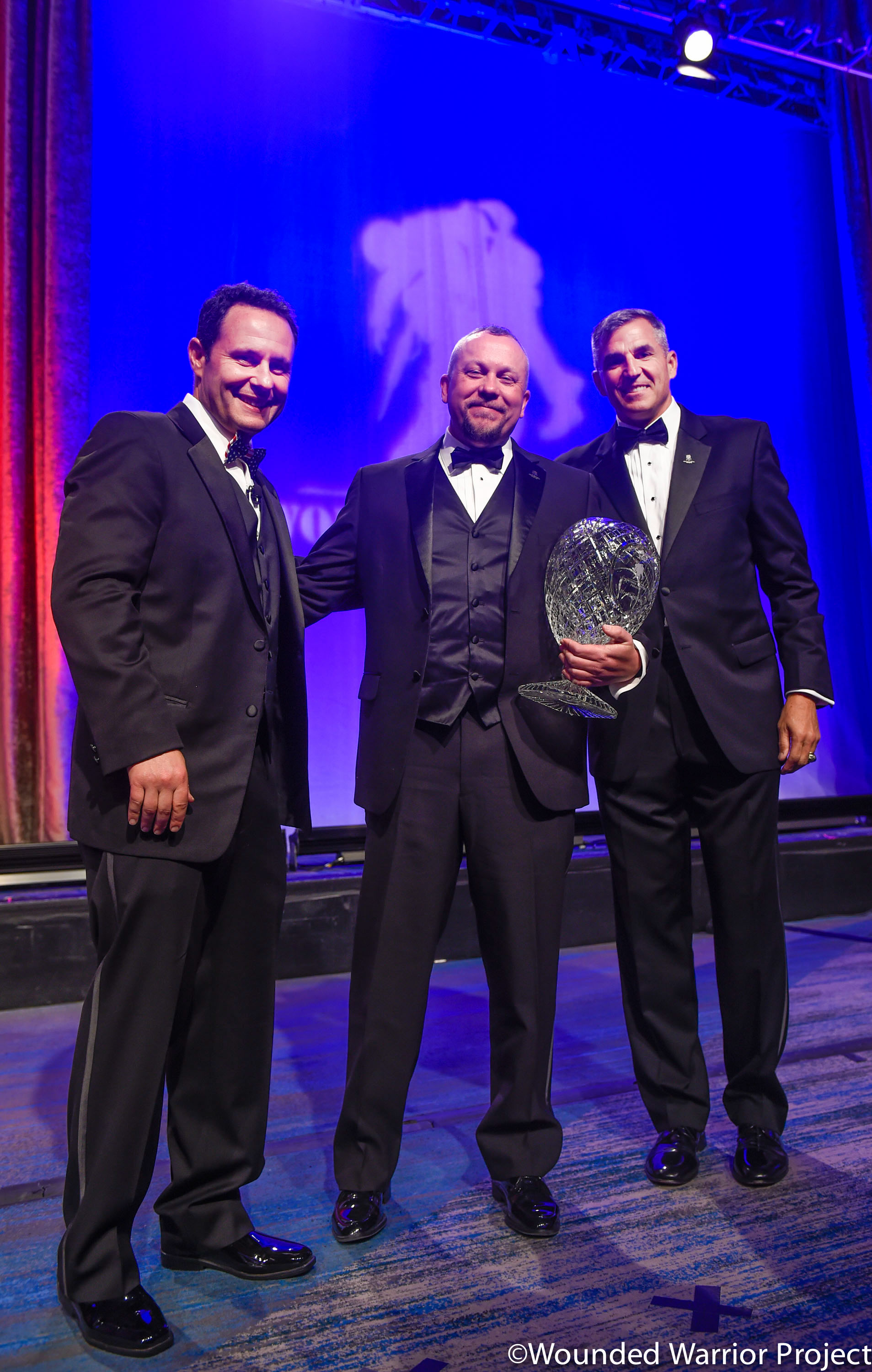
THREE OF MILLER’S PASSIONS LEFT him fulfilled for most of his life. He was an accomplished firefighter, having logged 17 years of service around his Oregon home since his teen years. His other love back home was the outdoors, and his hometown of Sisters, a tiny community about 30 minutes northwest of Bend, was surrounded by some of the Pacific Northwest’s most spectacular hunting and fishing grounds.
But Miller was also dedicated to the military, having joined the Army National Guard in 1998 and getting the call to go to combat in Iraq in 2004. The life he once knew would soon change forever in one sudden burst.
“There was a bomb that went off 6 feet from my (Humvee) door, and it made me blind in one eye, deaf in one ear and half-paralyzed on my left side,” Miller says. “I had a pretty bad traumatic brain injury with a brain bleed. That was the end of my military and firefighting career.”
His wounds were so severe he spent three years at a Palo Alto hospital and two more in outpatient treatment before he could be released. Miller spent countless hours in a bedridden haze. His physical injuries were obviously major, but it became more of a psychological chess match than anything else, not unlike so many others who’ve fought for the Stars and Stripes.
“I think the physical standpoint is easier to deal with, because you know what’s wrong and there’s a way to fix it,” he says. “But the mental (side), a traumatic brain injury and the psychological impact, is a lot harder. You don’t have a litmus test to tell if you’re getting better or not.”
As he had all the post traumatic stress symptoms, Miller was and is against including the word disorder in what’s commonly referred to as PTSD among wounded or disabled veterans. He calls his condition a “very normal reaction to a very abnormal situation.”
With so much idle time in a hospital bed, it’s easy to think the worst. Everything Miller’s body allowed him to do in the past was no longer feasible. The long road to recovery was full of curves, switchbacks and potholes.
“I kind of took it for granted that I was going to be a drifter and nomad. It was a career of 17 years of fighting fire, that’s gone and I can’t do that anymore,” he says. “It’s the only thing I knew how to do and liked to do. And I can’t do military anymore; that’s done and over. I thought I was going to be a mindless soul floating around life.”
And like many disabled veterans, that’s exactly what Miller seemed to endure when he was finally released from the hospital. Miller says many in his shoes will go on “hiatus into the wilderness and try to find themselves.”
He was no different. An avid motorcyclist, Miller bought a toy hauler for his truck, loaded his bikes in and drove Forrest Gump-style back and forth from the Pacific to the Atlantic three different times over two years.
After spending so much time in hospitals, he was through taking orders from anyone else. His new journey was one of self-discovery, reflection and pondering the future.
“I lived in RV parks, I’d hang out in shady hole-in-the-wall bars and have greasy-spoon meals and I would just go explore. Just completely away from the public,” says Miller, who essentially became incognito, rarely if ever keeping contact with friends or family back home.
He’d befriend a fellow RV park patron, but most were retired and spent their time playing bridge or canasta. Card games weren’t going to cut it for Miller. He knew that hunting, fishing and the outdoors remained a passion and that they offered him a chance to find some peace.
“I went on a couple (fishing and hunting) trips (with veterans) and saw the therapeutic and physical value of it and thought, ‘I want to do that.’”
WHEN VETERANS COME HOME from combat, their physical and emotional scars are best shared with those who can relate best: other veterans. For Miller, his time tramping the American highways was needed but not how he wanted to ultimately function.
His love for escaping whatever demons might have been lurking with a hunting rifle and fly rod turned out to be the remedy he’d been looking for.
“And like most of these guys, you’re basically starting life over and have to clean the slate. So I thought, if there’s one thing I wanted to do with my second life, I’d probably want to be a guide/outfitter,” Miller says.
Of course, such an ambitious goal can be expensive, but with a few other veterans who also wanted to pursue the dream, Miller sold his Harley around 2013 or so, and eventually Warfighter Outfitters was born and began to thrive, thanks to the hard work of those who came aboard as well as generous donors.
Disabled veterans from all over the country – Miller’s group has also hosted participants from as far away as Australia and the United Kingdom – have gone on excursions free of charge. There are plenty of viable options around the organization’s Oregon base for predator hunts, jet boat fishing trips for steelhead on the Deschutes River, and Miller says a few lucky wounded warriors will win a tag draw for bighorn sheep on the Deschutes and a special trip to Idaho’s Hells Canyon to hunt elk.
“Last year alone, just on fishing trips we got over 2,000 veterans out,” says Miller, who’s done various trips in California as part of the organization. “We have about $400,000 worth of equipment and we’re operating some of the most expensive trips for civilians that are completely free for veterans.”
In June, Miller traveled to New York to accept the top honor from the Wounded Warrior Project, the George C. Lang Award for Courage, for his contributions toward helping his fellow soldiers who were injured on the battlefield.
These days, nothing gets Miller more excited than the camaraderie he feels when everyone gets together.
“It gets to the point where every day, I can almost clock it depending on the conversation; people will really start talking about the nitty gritty and the things that are bugging them and how to deal with family or relationships,” Miller says. “But on that drive to the event, by the time we hit the boat ramp, all these strangers you’d swear are now complete best friends and have been all their lives.”
It might not be the end-all “cure” for those troubled by their battlefield injuries, but it’s a positive step in the right direction. Miller can cite multiple cases of success from the downtrodden and depressed who have hitched a ride to a river or a duck blind.
Miller’s former commanding officer turned to the bottle after his return and nearly lost everything. But after bonding on a trip with Miller, the officer finally sought the help he was looking for and is now thriving in Montana as an outdoors writer and marathon runner.
Whenever a wife, girlfriend, parent or friend calls or emails Miller thanking him for giving a disabled or wounded veteran a reason to be happy and optimistic, Miller feels like he’s helping others figure out a purpose in life he once couldn’t seem to find.
“I definitely know it’s affirmation that we’re doing the right thing,” he says.
“You really don’t know how bad you’ve got it until someone else in the boat or truck has got it 10 times worse. It gives you a little more clarity and perspective. Maybe things aren’t so bad. ‘This guy’s missing both legs and he’s wading in a middle of a river swinging a fly for steelhead.’ And then that person who sees that and experiences it, he then becomes more of a caregiver mode of, ‘I want to help.’”
“The biggest thing I’ve found is I’ve learned more about my own recovery helping others than I have being part of a recovery process.” CS
Editor’s note: For more info and to donate, go to warfighteroutfitters.org and like at facebook.com/

